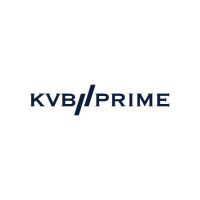
Whether you've just acquired or started a small business, having a strong grasp of bookkeeping and budgeting is crucial. While you may be well-versed in your trade, effectively estimating and aligning expenses with revenue is essential for assessing financial viability and ensuring sustainable growth.
Budgeting enables business owners to determine if they have sufficient funds to operate, expand, and generate income. Without a well-thought-out budget, businesses risk overspending or failing to invest adequately in growth opportunities.
Key operational costs include rent or mortgage payments, utility bills, payroll, cost of goods sold (COGS), interest, and taxes. When establishing or taking over a business, it's essential to consider these expenses and others specific to the industry.
For existing businesses, projecting future revenue based on recent trends is feasible. Startups, however, need to make assumptions based on factors like location, operating hours, and research on similar local businesses. Analyzing other businesses for sale and inquiring about revenue and traffic patterns can provide insights.
To create an effective small business budget, consider the following tips:
Check Industry Standards:
Research industry standards to understand typical allocations of revenue toward various expenses. While businesses differ, industry averages provide useful benchmarks.
Make a Spreadsheet:
Before purchasing or starting a business, create a spreadsheet estimating the dollar amount and percentage of revenue for raw materials, rent, taxes, insurance, and other costs. Contact suppliers to gather accurate information.
Factor in Some Slack:
Recognize that estimates are not fixed. Build in some flexibility to account for unforeseen expenses or variations in revenue growth.
Look to Cut Costs:
Identify areas where costs can be controlled. Consider delaying purchases until the start of a new billing cycle and take advantage of favorable payment terms from suppliers.
Review the Business Periodically:
Instead of an annual budget, small business owners may benefit from more frequent reviews, given the volatility of business environments. Establishing a budget planning calendar ensures ongoing financial preparedness.
Shop Around for Services/Suppliers:
Regularly explore cost-saving opportunities by comparing suppliers or services. This can be done during business acquisition, budget-setting phases, and periodic business reviews.
In conclusion, budgeting is a straightforward yet essential process for forecasting and aligning current and future revenue with expenses. The ultimate goal is to maintain financial stability, support business growth, remain competitive, and establish a robust emergency fund.
Paraphrasing text from "Investopedia" all rights reserved by the original author.













